|
Our AGM speaker, Matthew Elmes from Pollenize CIC, unveiled a new tool to combat the invasion of yellow-legged Asian hornets (AH) at our AGM.
Since then the company has launched a Crowdfunder campaign. He described the ‘Nest Sweeper’ as a device that will help monitor the spread of the invasive insects: “We've spent the last few years studying AH behaviour, including multiple research trips to Jersey, a hot-spot for AH activity, with the invaluable support of Alastair Christie BSc (Senior Scientific Officer for invasive species for the Government of Jersey). “Our project involves the distribution of our 'Nest Sweeper' device, an enhanced Asian hornet bait station (EBS) coupled with a cutting-edge reporting app. We invite you to be a part of this vital effort to safeguard our ecosystems and bee populations. “Unlike conventional bait stations, Nest Sweeper employs a vaporised dispersal method, allowing the hornet attractant to be carried on the wind. This innovative approach significantly increases the potential visitation of AH to the station, making it a game-changer for early detection and monitoring.” The winner of this year’s most prestigious annual award for Somerset beekeepers is Lionel Horler from Castle Cary.
He received the West Country Honey Farms Award in recognition of his outstanding contribution to the craft from previous winner, Stewart Gould, at the county’s annual meeting. Lionel, who has been keeping bees for nearly 50 years, led a team from the South East branch to set up an apiary at Hook Valley Solar Park on the outskirts of Wincanton. What was once a muddy and disused corner of the site has been transformed into a thriving apiary accommodating 12 colonies and a building where members can meet. Opened in summer 2021, the apiary has already been used for training sessions and raising new colonies for those completing their beginners’ course. Lionel found national fame when he appeared alongside fellow Somerset resident Sarah Beeney collecting and hive a swarm for her tv series about living in the country. As well as being an active swarm collector, he also heads the branch’s Asian hornet team and is actively recruiting more members and raising the profile of the threat the yellow-legged hornets pose to honey bees and pollinators. Longstanding branch member Bob Jones added: “I have known Lionel since he first came to this area and found him unfailingly helpful, especially with those new to beekeeping, patient, and always ready to give freely of his time. "Lionel is a lynch-pin in the bee tent at the Bath and West Show, runs the beginners' course year after year, and keeps himself forever available whenever there is cry for help from anyone in our beekeeping fraternity. I can think of no-one more deserving.” BBC Countryfile has been looking into the murky world of honey adulteration this winter and caught up with high profile campaigner, Somerset beekeeper Lynne Ingram, NDB and Master Beekeeper.
Lynne visited presenter Adam Henson on his farm and invited him to taste some of her Somerset honeys and talked about how local honey can be a snapshot of time and place. Lynne chairs the Honey Authenticity Network (HAN UK) which is calling on the government to do more to protect consumers and beekeepers. She is also the BBKA's honey authenticity ambassador. Lynne is working with Aston University alongside the Scottish Bee Company and the BBKA to develop a new, reliable test for honey authenticity. Somerset Beekeepers’ Association (SBKA) is calling on the public to help fight a major threat to honey bees and other pollinators - Asian hornets.
As of 19.9.23, 51 nests have been discovered in the UK so far this year, more than three times the number found in the last six years combined. Local beekeepers are concerned that these invasive predators will reach Somerset. There have been a number of unconfirmed sightings in the county. Lynne Ingram, SBKA’s Asian hornet team coordinator, said: “Asian hornets are wreaking havoc in Europe and, if they get established in the UK, our honey bees and many other insects will be decimated here, too.” Asian hornets (Vespa velutina) look like a large black wasp with yellow legs, an orange face, blackish brown body with a broad orangey yellow stripe towards the end of the abdomen. They are slightly smaller than native European hornets. Anyone who suspects they have seen an Asian hornet should report it immediately using the phone app ‘Asian Hornet Watch’ or the online reporting form: https://risc.brc.ac.uk/alert.php?species=asian_hornet Asian hornets are a non-native, invasive species and must be reported. Many nests have been found in patches of brambles and in hedgerows and there are fears that foragers enjoying the bumper blackberry crop and gardeners could inadvertently disturb a nest. Lynne added: “Foragers and gardeners should check hedges carefully to avoid disturbing an Asian hornet nest. Normally they don’t attack, but if you are near a nest, or disturb it, they can become extremely aggressive and dangerous.” A single nest can contain up to 6,000 workers and 350 queens. “We must act to stop them getting established in this country,” added Lynne. “Now is a key time to discover and destroy any nests before they produce new queens, which will mate, go into hibernation, and produce new nests next year” At this time of the year Asian hornets can be spotted on flowering ivy, fallen fruit and catching honey bees outside their hives. Asian hornets hover about a foot away from the entrance to a beehive, before charging bees and forcing them to the ground. They then paralyse them and carry the bees away. Just one Asian hornet can hunt down and eat 50 honey bees a day and their habit of hawking (hovering) outside the hive stops the bees from collecting nectar and pollen to feed themselves. “We need the public to help protect honey bees and other pollinators from this voracious predator.” Hornet sightings are filtered by the National Bee Unit (NBU), part of Defra, and teams of bee inspectors deployed to track hornets back to their nests which are then destroyed. Beekeepers across the country are mobilising as part of elite teams trained to provide emergency support to the NBU’s hornet hunters. A single Asian hornet queen arrived by accident in France from China in 2004 and has spread rapidly across France and into many other European countries. Ends About Asian hornets (Vespa velutina):
About Somerset Beekeepers’ Association (SBKA):
On Saturday 9 September the Central Division of Somerset Beekeepers held an information pitch at Wells Market in Somerset. The idea behind this was to get the message to the public and ask for their help in locating and reporting Asian hornets (AH) by using the AH Watch app. This Saturday was also chosen to coincide with AH week.
Over the course of the day we spoke to over 500 people, many of whom had heard about the AH issue but very few knew what they could do to help...until now. With most of the mainland UK sightings having been made by members of the public I felt, as Chair of Central Division, that it was no good me sitting on my backside moaning about the apparent lack of information that is getting through to the public but better to get out there and do something about it...so did. At the time of booking and organising this event there hadn't been coverage on the BBC, this also helped peoples awareness on the day. The Non Native Species Secretariat provided me with a number of exceedingly good quality handouts and we also used some that were printed by Somerset BKA last year. The public, once they realised we weren't looking for sponsorship or anything were mostly accepting and some had heard of the issue and promised to download the app. Many also had pictures on their 'phones of European hornets which are abundant this year. In the 60s every Post office in the UK had posters up about Colorado Beetles...why haven't they now got posters about AH, with information about the app. We need as many eyes on the ground as possible and a national campaign needs to be up and running or we will be too late and in a few years time beekeepers, those who still have hives, may well be trying to find ways to live with the AH. Nick Potts, Chair Central Somerset Beekeepers Somerset BKA's recent lecture given by Dmytro Kushnir talked about the situation in the Ukraine for beekeepers and the country more widely. The recording is available for members to watch: members area - lecture recordings.
Dmytro is the co-founder of Honey Brothers Ukraine, is head of the Honey Section at the AgriFood Committee of Ukrainian Chamber of Commerce and Industry, and the main co-ordinator of the National Honey Forum (the industry’s biggest business event in Ukraine). He is an expert on the geographical indications for honey and an international business consultant. Following our talk more than £200 was donated to support people in Ukraine through the National Honey Show's fundraiser. Thank you! The winner of Somerset Beekeepers’ most prestigious annual honour – the West Country Honey Farms Award – is Lynne Ingram NDB and Master Beekeeper from Taunton & District Beekeepers.
Her outstanding contribution to the promotion of the craft was recognised by fellow beekeepers at the county’s annual meeting held in March. Lynne said: “It is an absolute honour to be nominated by my fellow beekeepers, and to be presented with this award. It has been a real pleasure to work with other beekeepers on these different projects, and to be able to spread the word about the importance of bees for our planet.” Stewart Gould, retiring Chair and previous year’s Award winner, said that Lynne was a highly experienced beekeeper who generously shared her knowledge and passion with beekeepers in Somerset and across the UK. “She is the driving force behind Somerset BKA’s excellent online lecture programme which brings beekeepers together virtually for practical advice, the latest scientific advances and friendship,” he said. Lynne is a member of the Education Group, which runs online BBKA module study groups, set up and co-ordinates the Asian Hornet Action Teams and as co-events officer delivered a highly successful Lecture Day. She is an active member of Taunton Division and has served as Chair and on the committee. Lynne is a member of the BBKA Exam Board and chairs the Honey Authenticity Network UK (HAN UK), a small charity set up in response to widespread adulteration of honey imports. Further afield she supports beekeepers in Morocco and has been working with them on the re-introduction of the Yellow Saharan Bee to its native habitat. “This huge body of work enhances Somerset’s reputation as a BKA committed to its founding principles, namely ‘to advance the craft of apiculture and to promote general awareness and understanding of honeybees’,” concluded Stewart. Ends Pic cap: Lynne Ingram holding the magnificent West Country Honey Farms Award rose bowl. Somerset Beekeepers’ Association is seeking nominations for the 2023 New Leaf Life Design Award set up to help an aspiring beekeeper get started.
The Award seeks to encourage either an enthusiastic young person in Somerset who cannot afford to take up beekeeping or who deserves assistance. Somerset BKA chair Stewart Gould said: “It’s not cheap to set yourself up with all the necessary bits and pieces to start beekeeping and this award is to be given to a person or project who might find it difficult for financial or other reasons.” Last year the award was made to a 16-year-old autistic student whose experience managing his own bees has helped him to secure a place at an agricultural college. The youngster, who lives in the Mendips, attended a beginner’s course, set up his own colony and even managed to breed a new queen bee to give to another new beekeeper. Becky Wright, who runs the workplace wellbeing company New Leaf, is funding the award. Stewart added: “Becky very kindly donates a percentage of her consultancy fees to support the Award which funds the start-up costs. The award winner will receive a colony of bees in a new hive, a bee-suit, smoker and hive tool, and also have a mentor for the first year of beekeeping.” Nominations should be sent to Maggie Norris [email protected] by January 19. ends Photo credit: Stewart Gould On the first National Honey Day tomorrow (Friday, October 21), consumers are being encouraging to buy a jar of local honey.
Lynne Ingram, who keeps honey bees at East Huntspill, is the chair of the Honey Authenticity Network (HAN) UK and backs the national campaign promoting the benefits of local honey. “Every honey tells its own story because it tells you where it comes from, the plants that grew there, the climate which prevails and the weather of that year and of the producers and their bees. “Dip into a pot of Somerset honey and enjoy a snapshot of the season!” To help people find a source of local honey, Somerset Beekeepers’ Association publishes a list of producers https://www.somersetbeekeepers.org.uk/local-honey-search.html To meet consumer demand, around 90 per cent, or 47,000 tonnes, of the honey eaten in the UK is imported and there is increasing concern that some of this honey has been adulterated with syrups. While legalisation and government bodies from trading standards to the Food Standards Agency are charged to protect the public, HAN UK and the British Beekeepers Association, which has nearly 30,000 members, claims that the scale of honey fraud is growing. “Honey is the fourth most adulterated food in the world,” added Lynne. “To protect shoppers, beekeepers and the vital pollination of food crops, relevant food agencies and authorities need to be adequately resourced and the regulations underpinned by an enhanced and agreed testing regime that can adequately assess composition and authenticity.” The British Beekeepers Association has launched a petition calling on the government to change the labelling regulations so that consumers have more information about the origin of honey on sale in the UK. https://petition.parliament.uk/petitions/624402/ Increasingly it seems that some of the beekeeping fraternity are realising that they are ageing and still wanting to continue with their lifelong hobby, writes Somerset BKA member Garry Rucklidge.
The lifting of supers prior to examining a brood box is no easy task with a full super weighing 40lbs (in “old money”) and a box full of brood and stores likely in excess of that. Attention of these beekeepers has been grabbed by the proliferation of the top bar or long hive. I have recently joined the ranks of gentle back pain sufferers and with an eye to the future have designed and constructed a long hive which I shall be trying next year. Based on over 40 years of beekeeping I wanted to incorporate a few features which I felt are important. Firstly the colony has to be warm and in the case of the long hive this is less achievable as heat from the brood and supers rising upwards in a standard format is just not going to happen. Heat will have to travel horizontally but helps to be somewhat retained by good insulation by the walls and above the entire colony. This can be achieved by the use of Celotex, Kingspan or polystyrene. At this point I appreciated that my woodworking skills are not sufficient to make a hive with insulated walls with a perfect bee space over the length required for a long hive. For many years I have kept my bees in a poly Langstroth hive modified so that National frames with shortened lugs are used at right angles to the direction of the Langstroth frames for which the box was designed thus utilising the insulation properties. I therefore designed the long hive using two Swienty polystyrene brood boxes which were dowelled and butt jointed using the two spare ends to increase the length which I calculated would hold 31 National Hoffman brood frames plus dummy boards and queen excluders of which more later. The big plus is that the Swienty hives arrive in the flat and go together with dovetail joints as can be seen laid out above and below, being glued clamped to a straight edge and the two sides ready for the ends to be fixed to the sides with the dove tails. Another essential was that there had to be an open mesh floor in one section of the hive and that this floor should be level with the entrance to allow easy removal of the hive debris by the bees as it was not going to be possible to lift the entire hive off the floor for cleaning. This section is built in the centre of the hive where there are 22mm holes drilled into the supporting floor and box bearers as many as you want centrally so that any mated queen will return there into the brood box area and not into the stores area. The entrance holes can be simply blocked or opened as needed with wine corks – I don’t run my poly hives with anything more than a 120 x 8mm entrance all year round in a normal set up as it is easier to defend against wasps and it keeps mice out in winter. On either side of the brood area below the store section are removable solid floors which can be dropped down and removed by turning the set of cupboard catches, then scraped and flamed before and after winter to aid hygiene. The vertical queen excluders are framed as shown and both those and the dummy boards are a perfect fit to prevent the queen getting where she is not wanted. I will be able to expand the brood area as and when required one frame at a time using the dummy board or excluder depending on flow. The roof is kept lightweight and is hinged using three piano hinges (see two above) so that it does not need to be completely lifted off for inspections. Do remember to have the entrance holes on the opposite side from where you inspect so as not to get in the way of leaving and returning bees. I intend to use linen cloths topping the frames in the different sections so not all frames are exposed at a time. These are topped with Celotex in 3 sections again not all will need to be removed in an inspection. The space below the roof is deep so a 6 litre feeder can be easily fitted in the autumn or fondant in the winter. The hive dimensions are 1220mm x 480mm, and the hive stands 780mm off the ground at the top of the brood/stores box but this can be adjusted to your own comfortable working height with angled legs for stability. I used 2mm correx sheet for the roof using 6mm car panel plastic fasteners pushed into a drilled hole in the wood framing of the roof. Solvent based paint can’t be used with poly hives but Ronseal wood stain 10 year varnish does a nice job with a glossy finish. The bees were transferred on 17 March and seem to be all settled. For more photos, see Somerset BKA's Spring Newsletter 2022. |
Archives
March 2024
Categories
All
|
Somerset Beekeepers Association Charity © 2021 Registered CIO Charity 1206483
Affiliated to the British Beekeepers Association
Click here to view our Privacy Policy
Affiliated to the British Beekeepers Association
Click here to view our Privacy Policy
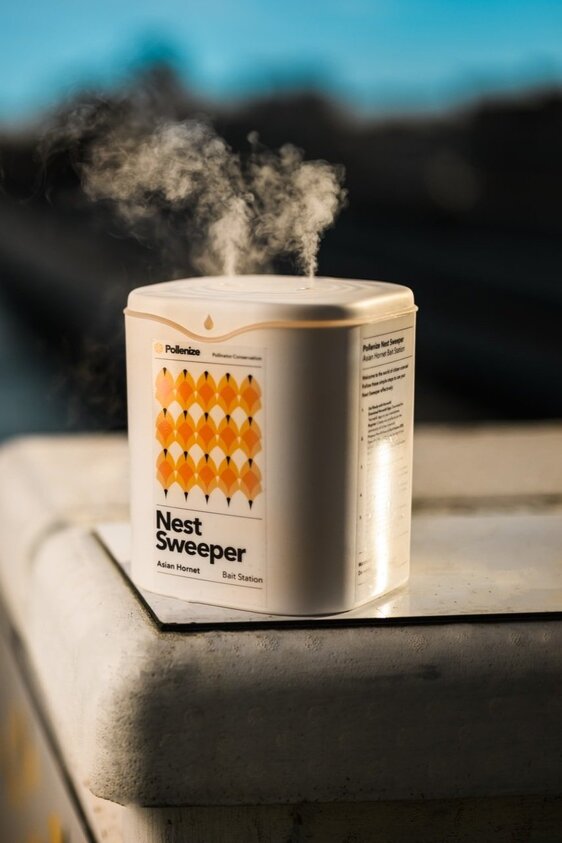
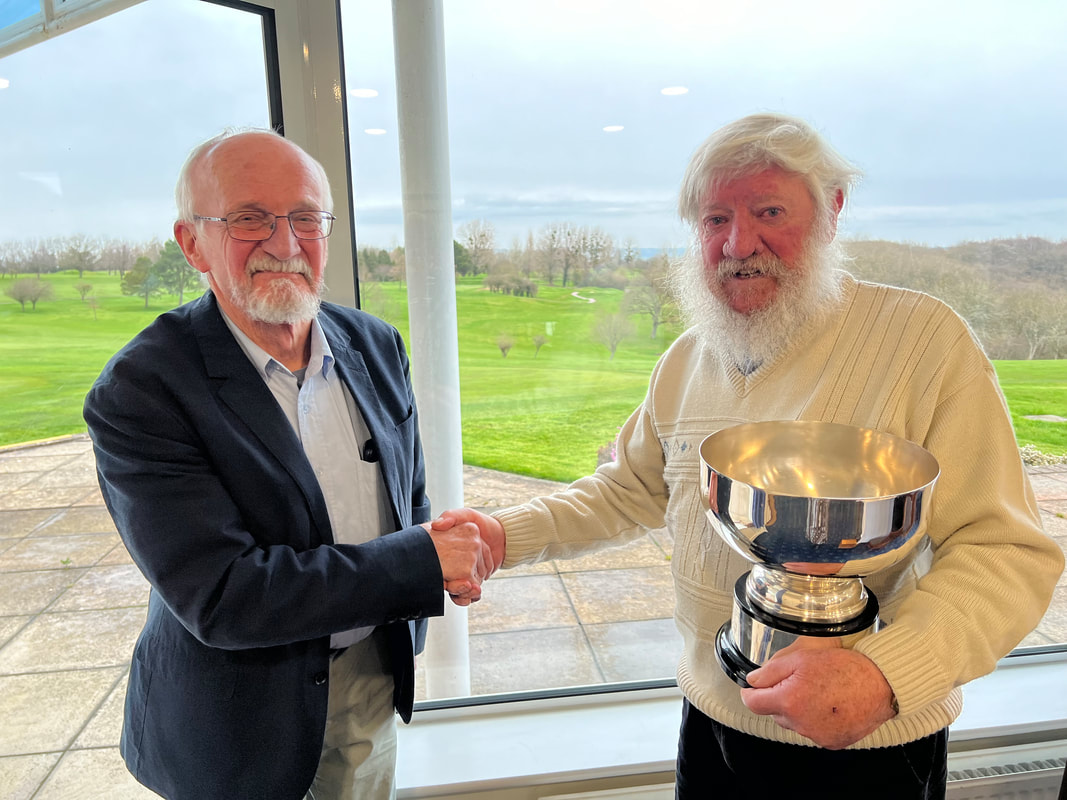
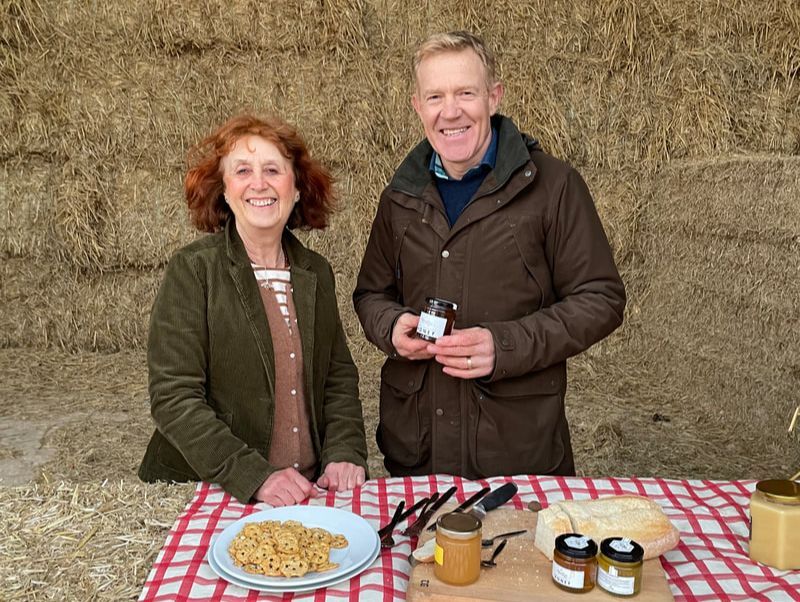
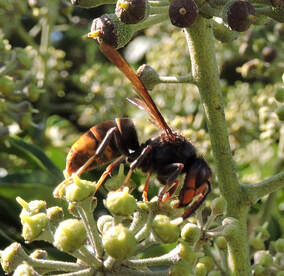
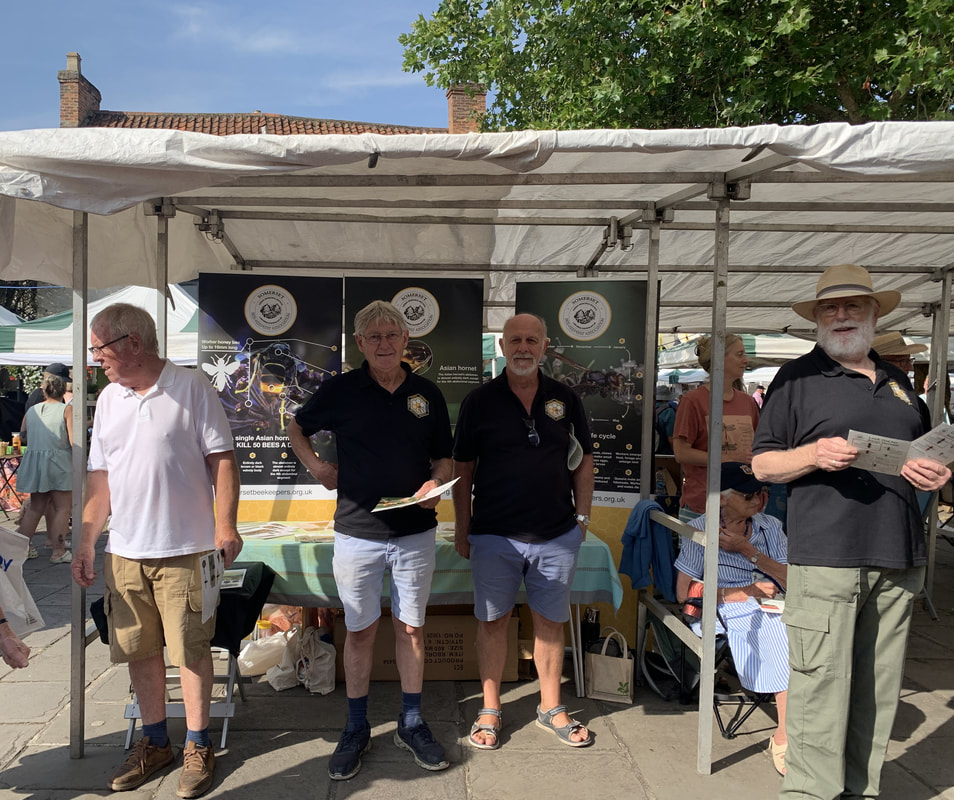
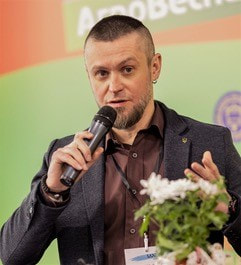
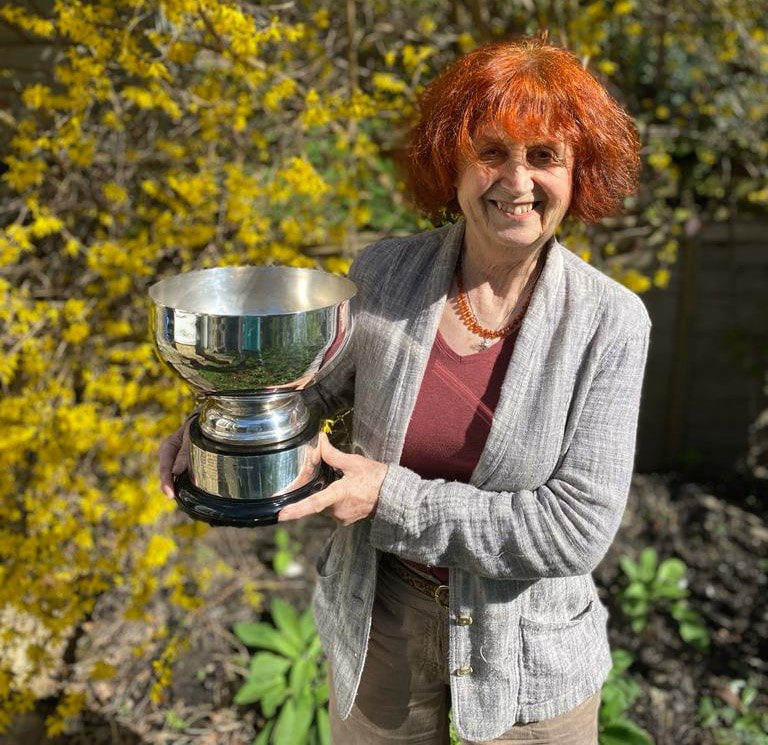
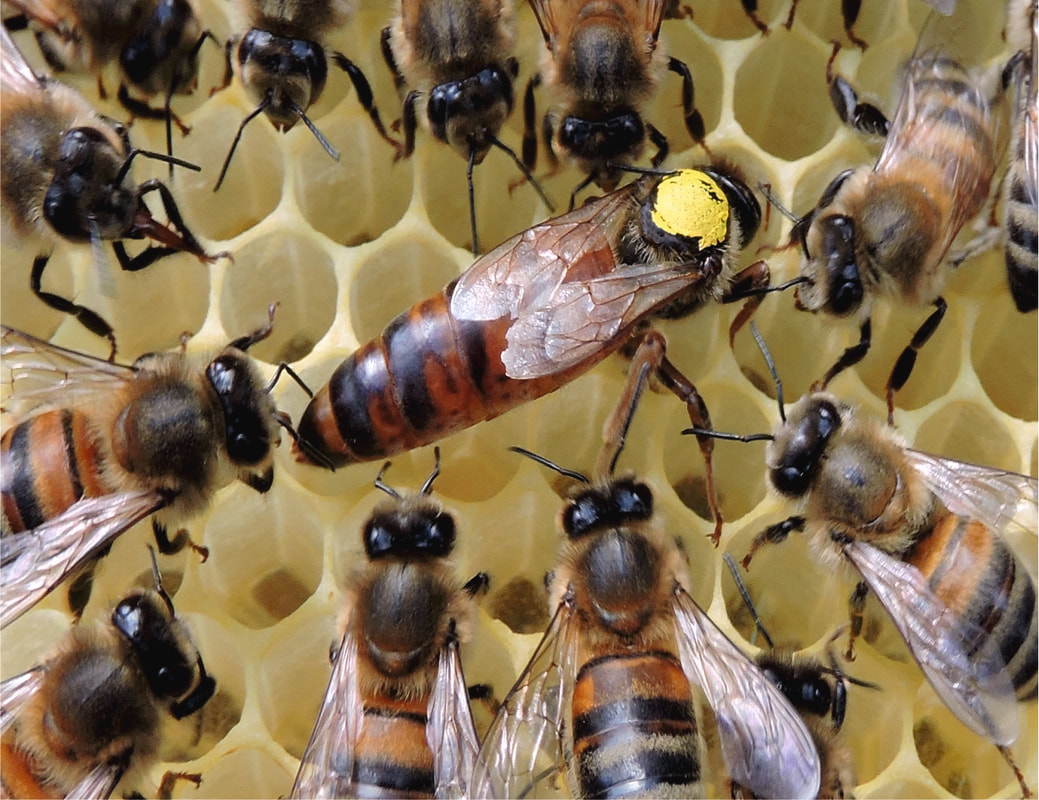
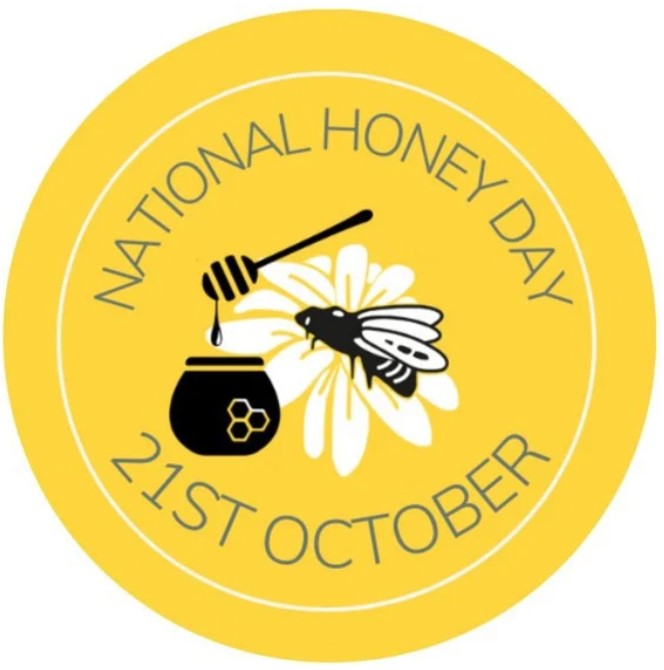
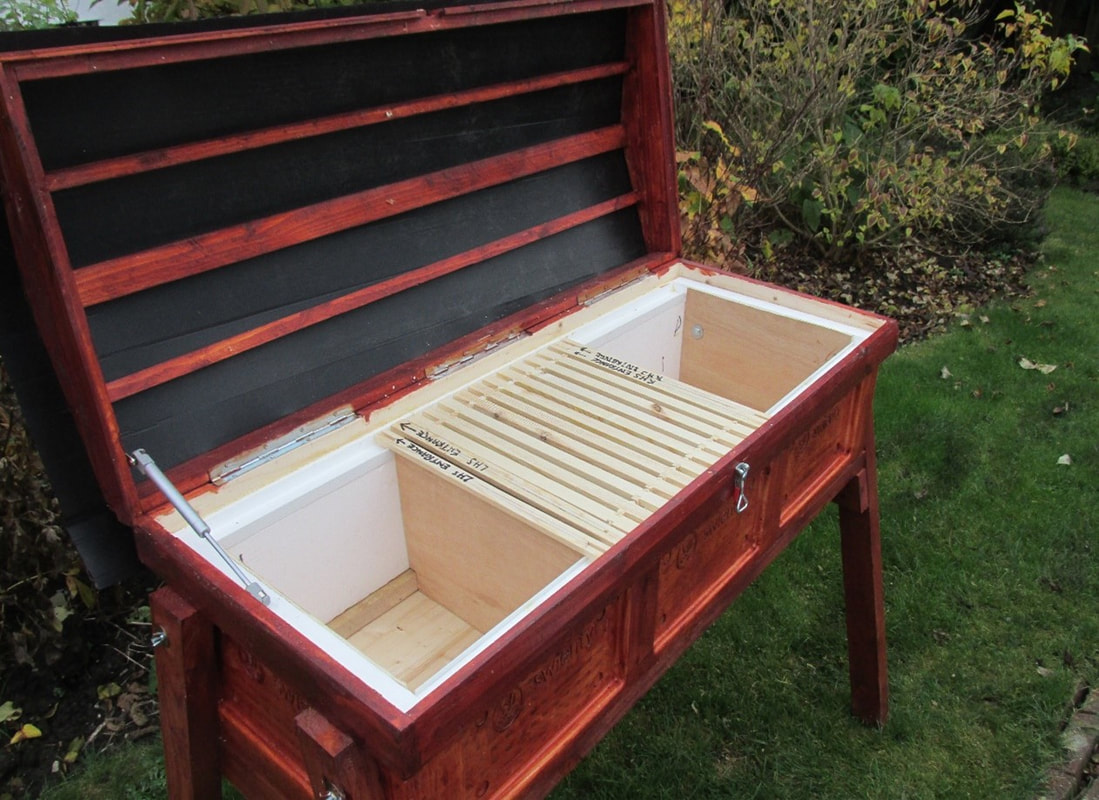
 RSS Feed
RSS Feed
